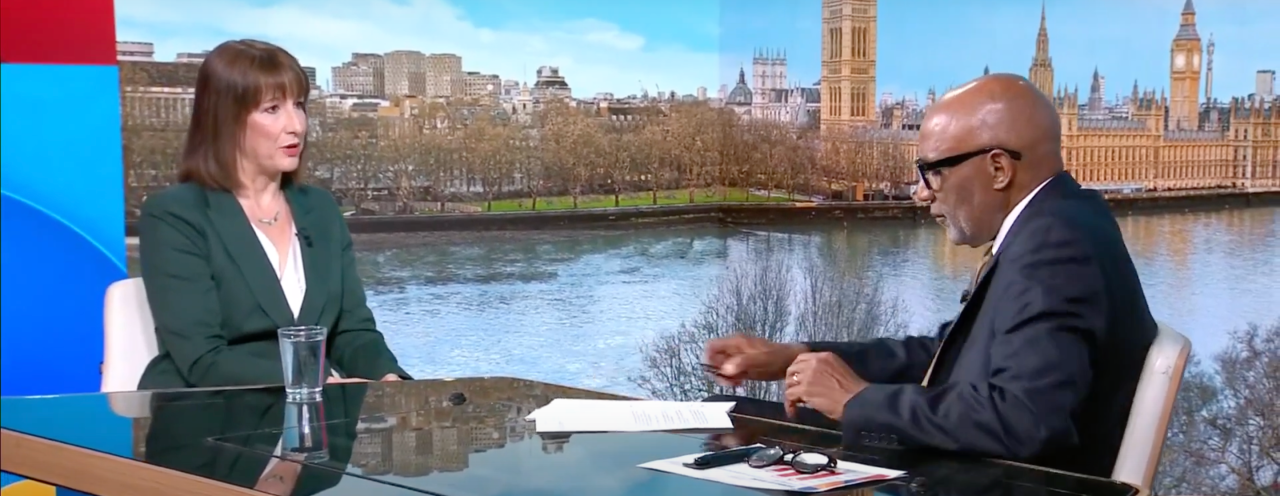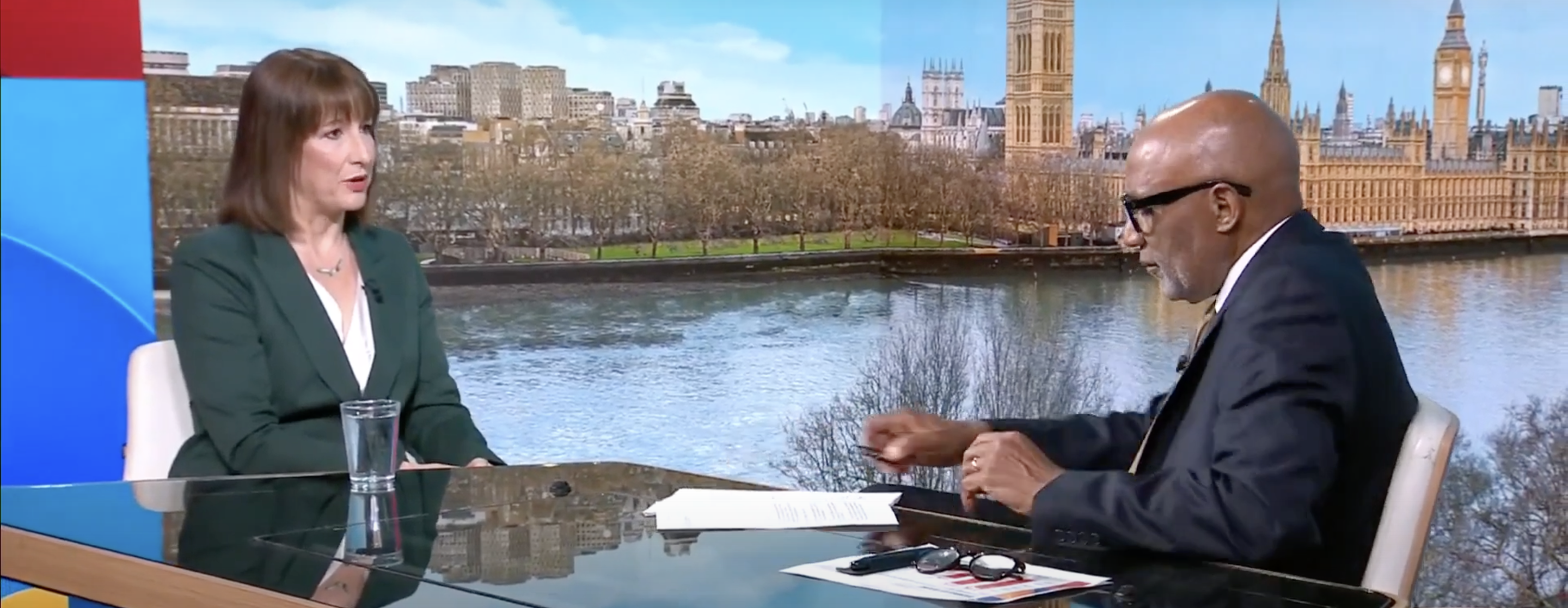Rachel Reeves: ‘I’m confident we will see living standards increase’
A report by the Joseph Rowntree Foundation has found that living standards in the UK are set to fall by 2030, news which increases pressure on Chancellor Rachel Reeves ahead of her Spring Statement next week. Appearing on Sky News this morning, Reeves rejected the JRF’s analysis, telling Trevor Phillips that there had been a ‘sustained increase’ in living standards since Labour came to power, and she expected that to continue. Reeves said that from April, people on the living wage would see a 6.7% increase in pay, and claimed that her government had brought ‘stability’ to the economy, although she admitted that she had to ‘do more’ to improve living standards further.
Rachel Reeves: ‘We will cut the costs of running government by 15 per cent’
It is expected that the chancellor will not announce tax increases in her Spring Statement, and will use administrative cuts to fund increases in spending on the NHS and defence. On the BBC, Rachel Reeves told Laura Kuenssberg that the size of government increased massively during Covid, but had not come back down to pre-pandemic levels. The chancellor confirmed that government departments will be asked to reduce costs by 15 per cent, and that 10,000 civil service jobs will be cut by the end of parliament. Reeves said there had been no ‘zero-based review’ on government spending since 2007, and suggested she wanted to spend more money on the most important needs of departments, whilst cutting waste.
Mel Stride: ‘Getting energy costs down… is important’
This week, Conservative leader Kemi Badenoch declared it was ‘impossible’ for the UK to meet its target of net zero by 2050 without a ‘serious drop in our living standards’, a goal which Theresa May made legally binding in 2019. On the BBC, Kuenssberg asked for Shadow Chancellor Mel Stride’s position on the matter, given that his own website still says the net zero target is ‘feasible, deliverable, and can be met within the same cost’. Stride said that Badenoch was ‘right’, and that more recent data showed the target to be an ‘extraordinary stretch’. Stride added that he was ‘very proud’ that the last Conservative governments had ‘halved carbon at the same time as substantially growing the economy’, but said that energy costs in the UK were four times higher than in the US. The shadow chancellor said the Tories were under new leadership, but that caring about the environment was in his party’s ‘DNA’.
Daisy Cooper: ‘Labour is at real risk of losing their moral compass’
Speaking to Trevor Phillips on Sky News, Liberal Democrat deputy leader Daisy Cooper criticised Labour for cutting benefits for disabled people, and claimed the government was planning on reducing the digital services tax which impacts 20 of the largest search engine and social media companies. Phillips pointed out that the digital services tax only raises £1bn, and asked Cooper if she agreed in principle that welfare benefits had to be reduced. Cooper argued that there were other pathways for the government, such as increasing taxes on big tech and banking companies, and accused Labour of having no plan to ‘genuinely grow our economy’.
Are Labour’s policies ‘anti-business’?
On GB News, Camilla Tominey asked Treasury Chief Secretary Darren Jones how Labour expected people to come off benefits and back into work when the government’s budget had ‘clobbered’ businesses. Tominey referenced statistics which indicate that small and medium sized businesses will have to lay off workers, and that Labour’s policies have led to fewer new startups and more existing businesses closing down. Jones admitted that Labour’s rise in NI contributions for employers had been difficult for some businesses, but said 200,000 new jobs had been added to the economy in the last quarter. He also said there had been positive feedback from investors about the UK’s ‘stable’ economy, and mentioned Labour’s new £600m pledge to train new construction workers. Tominey claimed that in interviews with small business owners, ‘not one person’ had said they had been positively affected by Labour’s budget.







Comments